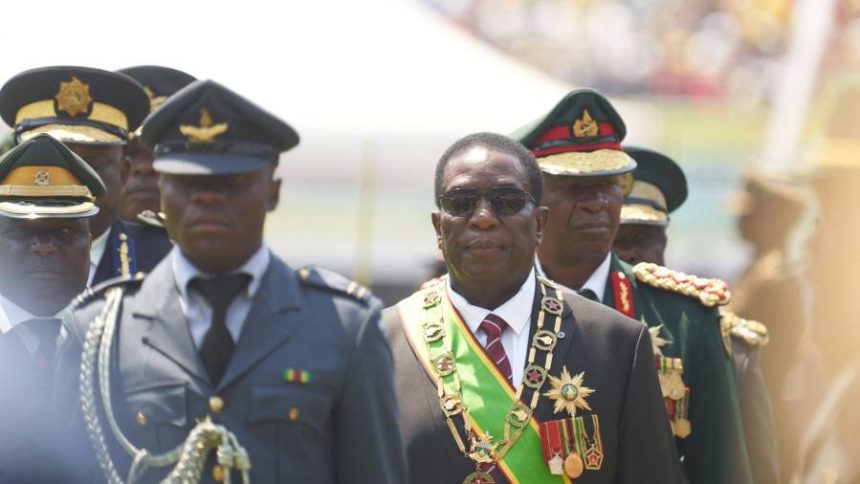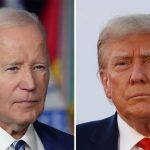Receive free Zimbabwe updates
We’ll send you a myFT Daily Digest email rounding up the latest Zimbabwe news every morning.
Southern African leaders were largely absent as Emmerson Mnangagwa was sworn in for a second term as Zimbabwe’s president, as the country’s opposition sought to rally the region to back a rerun of the disputed vote.
South Africa’s Cyril Ramaphosa, Felix Tshisekedi of the Democratic Republic of Congo and Mozambique’s Filipe Nyusi attended Monday’s inauguration in the capital Harare, but 12 other leaders from the Southern African Development Community stayed away.
Mnangagwa, an 80-year-old former spymaster who first took power after a military coup overthrew Robert Mugabe in 2017, was officially re-elected last month with 52.6 per cent of the vote, versus 44 per cent for his main rival Nelson Chamisa.
The process was marred by irregularities, including delays in sending ballot papers to opposition strongholds, intimidation of rural voters, as well as other factors, according to international observers.
There was also rare criticism of the election process from the observers of SADC, which has historically looked past signs of vote-rigging under Zimbabwe’s ruling Zanu-PF. This time the regional body said aspects of the largely peaceful vote fell short.
Chamisa’s Citizens’ Coalition for Change has abandoned using the courts to pursue a rerun of the vote, alleging that judges have been captured by Zanu-PF, and it has instead opted to lobby governments around the region.
Analysts said this would be difficult because SADC still mostly favoured non-interference in the politics of its member nations, many of which are still governed by Zanu-PF’s fellow former liberation movements, such as Ramaphosa’s African National Congress.
Mnangagwa’s inauguration was “a monumental illegality and a monumental illegitimacy”, said CCC. “Very few heads of state turned up and we advise Mr Mnangagwa to heed the call for a fresh, free and fair election,” it added.
Mnangagwa’s previous inauguration in 2018 took place after Zimbabwe’s highest court had already rejected a challenge by Chamisa to the result, in which Mnangagwa officially won just under 51 per cent of the vote.
In Monday’s inauguration speech, Mnangagwa insisted he had won the “peaceful, free, fair, transparent and credible” vote and dismissed Zanu-PF’s critics.
Notable absentee from the inauguration was Hakainde Hichilema, president of Zambia, which shares dam power supply and other links with Zimbabwe.
Hichilema, the current chair of SADC’s organ on defence and security, appointed the body’s observers for Zimbabwe’s vote. Since the observers released their findings, the Zambian leader has been repeatedly attacked by officials in Zanu-PF and Mnangagwa’s inner circle for alleged bias towards the opposition.
The Zimbabwean government on Monday pointedly invited Edgar Lungu, Zambia’s former president who presided over Hichilema’s imprisonment as opposition leader before losing power in 2021 elections.
Wilbert Mandinde, director for the Zimbabwe Human Rights NGO Forum, said that although Zimbabweans “may have resigned themselves to their fate” over the disputed poll, there was still space for the ruling party and the opposition to talk.
“Zanu-PF may not be keen to have such dialogue since its leader has been sworn in legally and is now serving his second and final term. But politically it may be very difficult for him to proceed and act normally if other leaders regionally and internationally shun him,” Mandinde said. “There could still be a window of opportunity,” he added.
Read the full article here




